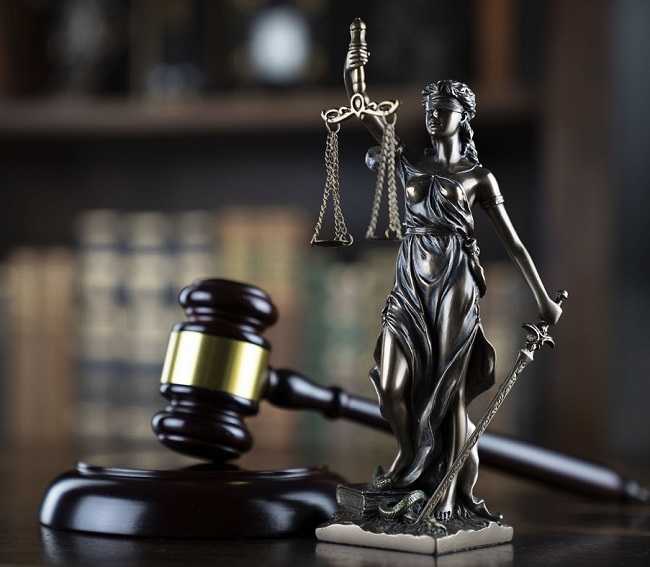Dec 21, 2025
Dec 21, 2025
Don’t we have Laws, in the Constitution or in the various enactments, that are inviolable and absolute in their terms on which the citizens can rest assured? Though most laws are of that kind, the answer to this question will be an emphatic NO, considering how Justice is administered for the citizenry of the country.
Indian jurisprudence, as perhaps jurisprudence elsewhere, is heavily interpretative in nature, as the Courts dispense not the Law or Justice per se, but the interpretation of that Law by the Judge. That interpretation, unfortunately, may vary from Judge to Judge, from Court to higher Court. And the tone and the tenor and the colour of the judgement may depend on the erudition and legal acumen of the dispensing Judge, as also, perhaps, his social commitment, political awareness and religious perceptions.

Helping him to arrive at a right or wrong judgement is the enlightened scholarship of the enlightened, and in a way highly expensive, lawyers, all of whom are adept in dissecting and interpreting any point of Law of the Land this way or that way.
The error of judgement may be two-fold. There may be wrong interpretation of the Law by the Judge or erroneous appreciation of inadmissible evidence. In either case the judgement is flawed, necessitating an appeal for review.
And in both civil and criminal cases, the system of appeals is fraught with the danger of escalating cost of litigation. The higher the court, the higher will be the fees for the counsels and the attendant costs of litigation. Ordinary mortals cannot think of an appeal up to the Supreme Court where the learned counsels charge them lakhs of rupees for appearance for just an hour.
How can the judicial system seek to ensure that judgements by the learned Judges right from the trial court level upwards are not flawed on account of wrong interpretation of the Law or consideration of inadmissible evidence?
For this a paradigm shift in jurisprudence may perhaps be needed. The first thing required in this regard may be described as juridical accountability.
If a judgement in a civil or criminal case is SET ASIDE by a higher court, can the Judge who delivered that flawed judgement be held accountable to the extent to which there was miscarriage of justice?
If a system of accountability is strongly put in place, perhaps the Judges may infuse more of their legal wisdom into each case to ensure that the verdict they are about to pronounce will not be considered flawed by the application of any standard whatsoever.
At present do we have any such accountability quotient for the Judges? In the U S the percentage of reversals does have an adverse impact on the Judge when he is considered for a higher judicial position. It is uncertain if such a black marking system is in force in India. Even if there is such a system, it may be far too insufficient a safeguard against miscarriage of justice from the trial court level to the highest court in the land.
It is generally said that two heads are better than one. The presumption is that the wisdom of two people is better than that of one individual to help arrive at a wise decision. In keeping with this, we have the system of a Division Bench of two Judges, a Full Bench of three or more Judges or even a Full Court deciding on an issue. It will be all right if all the Judges concur on a point of law. The problem comes when at least one Judge disagrees and gives a ‘Dissenting Judgement.’ He may dissent on interpretation of law or on the procedure adopted or on the evidence considered. Whatever it is, any dissenting judgement poses this question before the litigant and the general public. Which judgement is correct before the Law? In interpreting the Law of the Land can there be a majority-minority division as in the case of voting in legislatures? The Law is absolute and its interpretation also should be absolute, never giving to guesswork.
When a trial court’s decision is reversed by a single Judge of the High Court, that is reversed in turn by a Judge of the Supreme Court or that by a Division Bench or a higher formation, the question remains. Whose decision was bad in Law and was that concerned Judge in any way held accountable for what could have been miscarriage of Justice? And if an appeal to a higher court is admitted and the case is disposed of in favour of an appellant, will the appellant be entitled to financial reparations for the huge amounts he is forced to spend in litigation up to the higher courts just because of an erroneous judgement in a lower court?
Will there be any such review of the judicial system in the near or far future, a review that may help the multitude of unfortunate litigants who go bankrupt while moving from the local court to the highest court in the land in search of an elusive Dame Justice?
:
Image (c) istock.com
18-Dec-2022
More by : P. Ravindran Nayar

|
Very well written. Remember Clarence Darrow cases like the famous monkey trial. And the great work To Kill a Mockingbird. You have raised some valid points. What happens to people who have passed judgment s which led to misery of innocent people. Think of Dreyfus and Oppenheimer. Bravo. Carry on. |